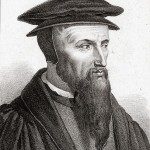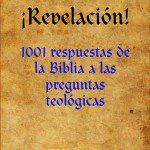You are switching the topic yet again, too. Note your statement that I challenged you to substantiate:
“how many of those catholics were quite literally ordered under threat of imprisonment and the possibility of torture to not disagree with the church.”
Having one’s work banned is not an example of “threat of imprisonment and the possibility of torture.” Apparently, you tried to find some examples and couldn’t find any, and so decided to bait-and-switch and start arguing against something entirely different: having one’s works censored (hoping that no one would notice that you switched horses in mid-stream).
There can be various possible good arguments against censorship in a given case. But in any event, that is a different issue from “threat of imprisonment and the possibility of torture”. Therefore, your query remains essentially undocumented.
If Galileo’s house arrest (with no torture) is supposedly the best incident you can bring up as to the Church supposedly being “anti-science” it is a pitifully weak argument indeed. Your point about Copernicus is, of course a mere argument from silence. Copernicus’ work was encouraged by the Church of the time. Surely, that is a more relevant point to note than your hypothetical speculations about what possibly might have happened, had he not died after publishing his masterpiece.
But you get an E for effort and chutzpah . . .
I suppose you’re right, being censored and being threatened are two different things, I offer those as examples because a- the names were people included in your meme, so they’re particularly relevant to the discussion even if they’re not directly answering your question… and b- that in that age being censored and being charged with heresy seem to often accompany one another.
There are many examples i found where philosophers, mathematicians, scientists and/or “free thinkers” were charged with heresy for owning their opinions that disagreed with the church, I didn’t use those because I didn’t know if they were catholic or not.
The fact that scientific writing of the day was forced to present any finding without expressing any kind of opinion (ie presenting their opinion simply as a possibility instead of being able to actually endorse it), for fear of persecution by the church is almost enough for me to draw a conclusion by itself… almost.
There’s also a difference between galileo being the only clearly documented example of the threat of arrest and torture that I can easily find (lets be clear, I spent less than two minutes phrasing searches on google just to find what I did)… and his being the only example of the church being anti-science. every example I’ve given shows the church as anti-science during that time.
You can have the last word. Here are a few more links to my related papers:
Richard Dawkins & Double Standards of the “Religion vs. Science” Mentality / Galileo Redux [3-20-08]
Cardinal Newman on Galileo and the Alleged Dogmatic Status of Geocentrism [6-16-11] [Internet Archive; allow time to upload]
Galileo, Bellarmine, & Scientific Method [10-20-15]
“Science vs. Religion” Chronicles: 16th-17th Century Astronomers’ Acceptance of Astrology (+ Part Two*) [5-25-06]
Christianity: Crucial to the Origin of Science [8-1-10]
33 Empiricist Christian Thinkers Before 1000 AD [8-5-10]
Christians or Theists Founded 115 Scientific Fields [8-20-10]
St. Augustine: Astrology is Absurd [9-4-15]
Did St. Thomas Aquinas Accept Astrology? [5-30-06]
Catholics & Science #1: Hermann of Reichenau [10-21-15]
Catholics & Science #2: Adelard of Bath [10-21-15]
Science and Christianity (Copious Resources) [11-3-15]
*
Surveys of Current Religious Beliefs of Scientists [10-18-10]
Books by Dave Armstrong: Science and Christianity: Close Partners or Mortal Enemies? [10-20-10]
Typical “Science vs. Catholicism” Criticisms (and Myths) from an Agnostic Scientist Refuted [7-29-11]
Simultaneously Dumb & Smart Christians, Atheists, & Scientists [10-9-15]
*****
Meta Description: Discussion with an agnostic about the degree to which the Catholic Church was “anti-science” at various periods of her history.
Meta Keywords: Catholic Church & science, Catholicism & science, Galileo, scientism, faith & reason, scientific method, Copernicus












